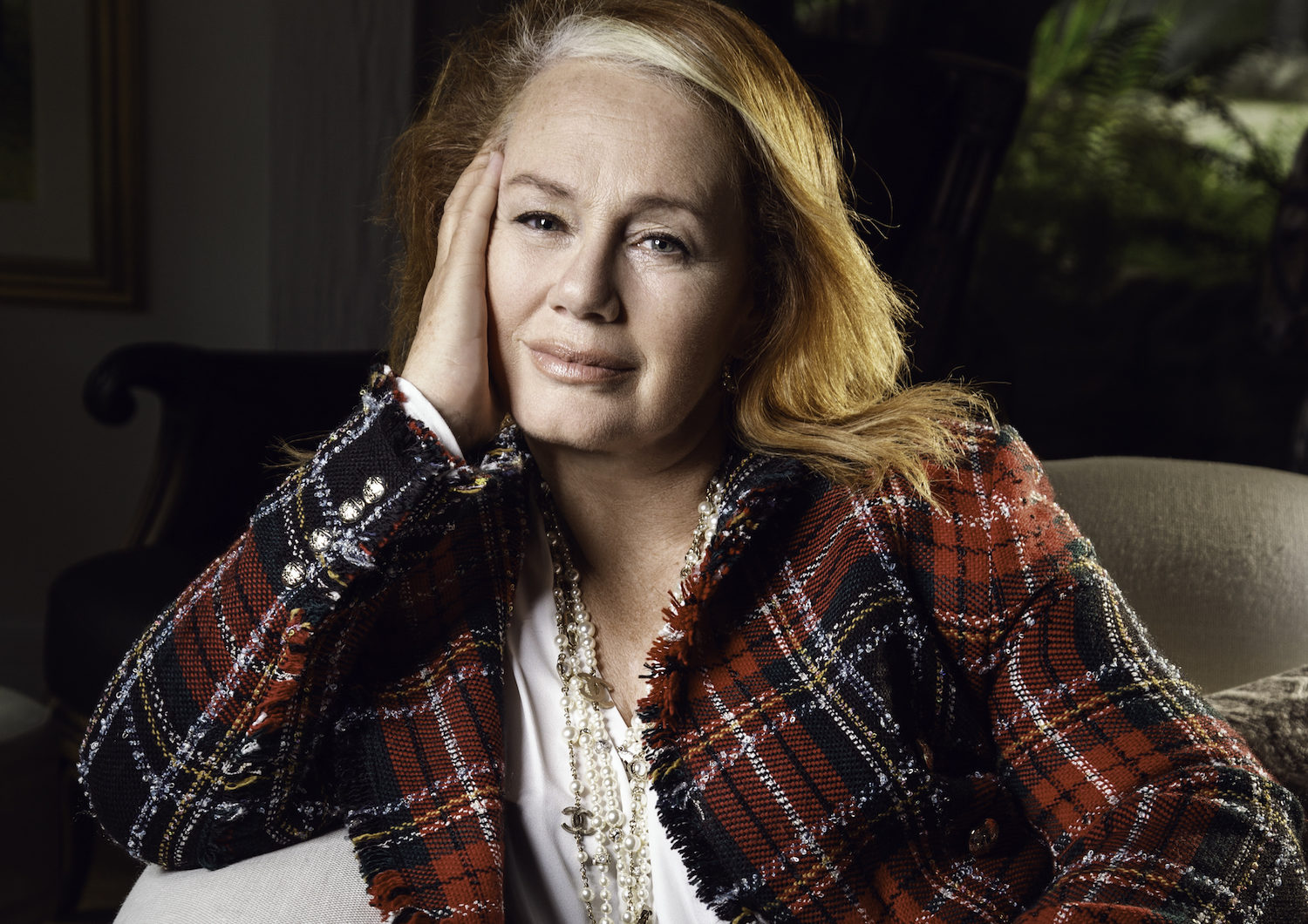Arlene Dickinson is a powerhouse. Her biography is something to marvel at. One can’t help but be awed by her trials and tribulations, her triumphant successes.
She is the CEO of Venture Communications Ltd., which she single-handedly brought to its current status as one of Canada’s largest independent marketing agencies. The Desautels Faculty of Management at McGill University, a highly ranked international business school, awarded her its Management Achievement Award (an award that honours business leaders who contribute to their community through their work and philanthropic endeavours) in 2008. More widely known has been her role as one of the “Dragons” on Dragons’ Den, where, during her tenure, she backed the now ubiquitous Pür gum and OMG candy. She has also received a Queen Elizabeth II Diamond Jubilee Medal.
It goes without saying, but we’ll say it anyway: Dickinson is one of Canada’s most successful entrepreneurs. So, if anyone can teach a budding entrepreneur how to be, how best to be, it is Arlene Dickinson.
For Dickinson, being a successful entrepreneur cleaves irrevocably to self awareness, social responsibility, and informed action — things that are intuitive but that traditional ideas circumscribing the ideal business person elide. From pop culture we’ve learned that a business person is classically masculine: in a crisply-cut suit, constantly working with a cellphone always at the ear. Always busy, always on — never taking a break. Never showing weakness.
Dickinson, on the other hand, shows us warmth. She performs — so that we might see — her love for nature, her tears, her love for her family, confessions of exhaustion or fallibility, and the moments she takes away from work. Her captions on Instagram sometimes ramble like a long poem or an unpunctuated sentence gasped out by a giddy teenager, and other times are a few words eulogizing nature.
She hopes to lead by example, by demonstrating to us the humanity that everyone possesses but few feel the freedom to display. And by displaying it genuinely, she sets a precedent, potentially paving the way for a more nuanced and multifaceted idea of an entrepreneur and a business person.
For Dickinson, success of any kind is attendant to success as a human being — the two aren’t mutually exclusive. Success is not synonymous with perfection. It’s more ethical, it’s more about being a good and responsible person. Dickinson doesn’t want the same goodness of everyone, though, she is not advocating good without qualification — she wants a person to do their own personal best to put something good out into the world. Dickinson might be intersectional in her ethics.
We caught up with with Dickinson at the 2019 TELUS Pitch on July 30 — the winner of which was FoodFund — for a quick chat about what makes not just an entrepreneur, but a good entrepreneur.
Never stop improving
“I think there are so many actors of all ages thinking about how we can go and do things that are amazing. It doesn’t matter what age you are, you can still go and start a business,” Dickinson says. But don’t force it.
“I think if you have it in you, you can learn how to be a better entrepreneur. But to me it’s who you are. I don’t think you can force somebody to be an entrepreneur or teach them to change the way they think. I think it’s something that you have but you can get better at — through courses [for example].”
Leave a legacy
“Leaving a legacy, no matter what age and stage you are at, thinking about what the footprint is that you leave behind as you go through life if very important,” Dickinson says. “Too often we’re just here and present and we’re not thinking about the impact we have on other people. Giving back is a critical part of anyone’s journey, and hopefully most new businesses are continuing to make it part of their reality — they bake it into their business, as opposed to thinking about it afterwards.”
Dickinson is of the Warren Buffett school of thought — she believes that the rich, possessing more resources and funds, have a responsibility to “clean” up the world. With increased resources and awareness, there should be no excuses not to, she believes.
“We, for generations, my generation included, there was a lot of misunderstanding and lack of knowledge around the impact we’re having on the earth, and in general in society. We have no excuse [now]: we have heightened awareness, we have more information than we’ve ever had, we know more about what’s going to happen with the future. We think about climate change and understand what we can and can’t do. We think about social impact and understand how vulnerable people, disenfranchised people need to get more support and get the help that they need in order to be able to be all that they can be. Every human deserves the same opportunities.”
Put something good out into the world
We’re in a curious age. As Dickinson says, we have so much information at our fingertips. With a swipe or a touch, our awareness is alerted to everything and anything happening on the opposite side of the world. This can get paralyzing sometimes. When something bad happens very far away, what can we do to help? What if one doesn’t have money to donate? Not knowing what to do brings on a feeling of helplessness, of fear, of panic. Dickinson has felt these feelings.
“You know, about a year ago — in fact, I think I could remember the day, it might be October 27th. I got up one morning, and as we all do, we reach for our phones, we go on social media. I went on Twitter, and there was some — [her memory fails her] — I think it was a mosque. There had been a mass killing at a [place of worship] in Pittsburgh. At the time, you know how you see these negative things all the time, it just becomes overwhelming. And I woke up — it’s going to make me cry thinking about it.” And she does cry.
Her eyes fill with tears and she takes off her glasses. When she looks down to put the frames on the couch next to her, the tears don’t run down her cheeks — she wipes them away before they can. Resting her head on her fist and with that faraway glance that focuses on nothing in particular, anything at all to anchor the rational mind, she allows herself to feel her feelings. She takes her time.
“And I woke up thinking, ‘Holy smokes, this world is really messed up.’ And I thought about the impact we can have. We all make a difference. So I said I’m going to put out something positive. So I did.” She laughs in that conciliatory way that you do when you want to assure others that you’re okay. But it is also vulnerable.
“There’s a lot of fear and anxiety out there.” She sniffs back tears. “And if we don’t do something different about it, we will continue to have fear and anxiety. I think it’s incumbent on all of us to think about the words we say. Because words matter, and they matter to the point where you go, ‘Okay, is what I’m saying actually having the right impact, or is it just me reacting [with] anger or fear or frustration. Why am I acting how I am?’ And I think the more we can be self aware — and women are good with this, women are very self aware — for me, at least, that moment was when I went, ‘I can actually do something different. I have the ability to say whatever I want to say. It’s my feed, people don’t have to follow me if they don’t want to.’ And I decided that everyday I was going to say something positive. And it’s actually changed me. So I think we have an impact on ourselves with what we say, how we express ourselves, how we go out to the world, and that can be on social media. You want to be on Instagram looking great all the time and being perfect when you’re not. And so this is something that I care deeply about.”
Finally, Dickinson speaks to Bay Street Bull readers directly
“I would encourage you to do that. It does have impact. The number one thing people will say that to me is that they see that [positivity from me] on Twitter. That’s more than the people who follow me. I have a certain number of followers. But the people who come up to me, they’re not necessarily followers, they’re just people who are looking for something positive. And everybody’s got a platform, everybody’s got something to say. Even if you influence one person, two people, ten followers, a hundred followers — it doesn’t matter how many followers — it matters that you’re out there trying to have an impact. I would encourage all of your readers to think about [how] words matter and what you put out there actually matters, [I would encourage them] to make a difference in your own lives.”








